

Mediation to Stay Married
Mediation to Stay Married is a form of mediation used to assist couples with working through issues that at best are complicating their marriage and are at worst leading them to the brink of divorce. Issues like finances, child rearing, communication problems, and infidelity, among other things, often cause couples to struggle. We use mediation to work through those issues to provide a roadmap to peace.
Our staff of trained professionals brings couples together in a safe haven to not only discuss their issues but to actively work toward a resolution of their issues. Through Mediation to Stay Married sessions, our couples leave armed with relationship specific techniques, rules, and guidelines to effectively deal with the issues that threaten to end their marriage.
Frequently Asked Questions
The foundation of Mediation to Stay Married is the effective use of resolution techniques. Resolution and negotiation techniques are used in many other areas from law to business. When applied correctly it can also be used in marriages. The basis is the same, two parties that need to work together. Through Mediation to Stay Married sessions, our couples leave armed with relationship specific techniques, rules, and guidelines to effectively deal with the issues that may have them on the brink of divorce.
Like marital counseling, Mediation to Stay Married, is billed at an hourly rate. So, in terms of out of pocket costs, the services are comparable. As far as the specific value of the service, clients remark that Mediation to Stay Married is a more hands on approach to dealing with the problems plaguing a marriage. Clients find that since our goal is save your marriage through discussion, negotiations, and goal setting, the sessions are truly different than those with a marital counselor.
Most marital counseling plans require attending several one hour sessions that span several weeks. Mediation to Stay Married generally occurs in one to two sessions that can last anywhere from one to several hours. While both services can be valuable for couples and many couples need both services, Mediation to Stay Married is often a more streamlined way to deal with marital issues often saving couples time and money. Ultimately if it keeps a couple from divorce court, the service is truly invaluable. Please contact our office for the hourly rate of Mediation to Stay Married.
The best time to use Mediation to Stay Married varies from couple to couple. Some couples are directly referred to us from marital counselors after they have successfully completed marital counseling. Others utilize the service without ever considering marital counseling because they are clear on the issues that they want mediated and simply need a neutral party to assist them with arriving at an agreement. Often, we refer couples to marital counseling after a Mediation to Stay Married session if we believe this will help facilitate a settlement of their conflict. We are happy to assist couples at any stage of their marriage.
If you are still uncertain review our “Is Mediation to Stay Married Right For Us?” checklist HERE or Contact Us directly.
The length of mediation varies from situation to situation. We generally require a two hour minimum so that parties can work the process. Some mediations are completed over multiple sessions, but we have found that many can be completed during one session. We work with clients as long or as short as they need. As long as the process is working, we are there. We take breaks as needed and assess each case prior to scheduling to best anticipate the length of time required for a mediation session.
Mediation is only effective when the “decision makers” are present. This means that mediation cannot go forward unless both parties attend. In Mediation to Stay Married, both spouses need to attend. This is similar to other types of mediation where the Plaintiff and Defendant must be present. There may come a time where the mediator speaks with each party on a one on one basis, but this does not always occur.
Disclaimer: The content relayed in this FAQ section is purely informational and should not be construed as legal advice.
Expert Opinions
–Damaris Solomon-Johnson, MFT, LAMFT
–Stephanie Blackett, LCSW



